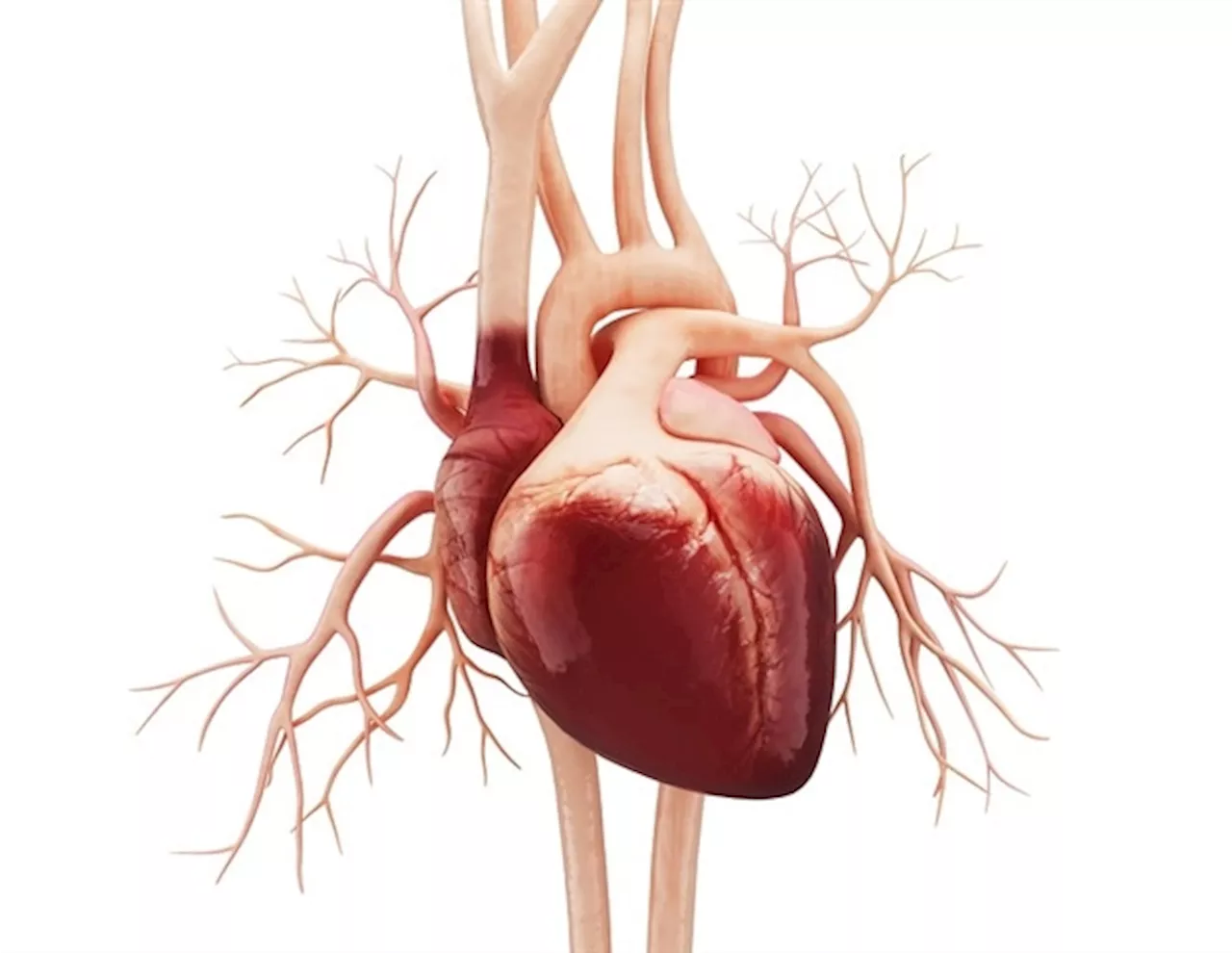Forty-five per cent of patients admitted to hospital for atrial fibrillation (AF) in Australia and New Zealand die within a decade, according to University of Queensland research.
Apr 29 2024The University of Queensland Forty-five per cent of patients admitted to hospital for atrial fibrillation in Australia and New Zealand die within a decade, according to University of Queensland research.
AF is the most common heart rhythm disorder and the leading cause of heart-related hospitalizations globally, causing symptoms like palpitations, dizziness, and chest pain. Unfortunately, we found only 55.2 per cent of patients hospitalized with atrial fibrillation survived beyond a decade." Dr Ngo said while some of those deaths were attributable to co-existing conditions, the research showed AF reduced a patient's life expectancy on average by 2.6 years.
Co-author and cardiologist Associate Professor Isuru Ranasinghe from the Prince Charles Hospital said the research revealed at 10 years, less than 7 per cent of patients had catheter ablation procedure, one of the most effective treatments for patients with symptomatic atrial fibrillation.
Atrial Fibrillation Blood Heart Failure Hospital Medicine Research Stroke
United Kingdom Latest News, United Kingdom Headlines
Similar News:You can also read news stories similar to this one that we have collected from other news sources.
 New genetic insights: Sugary beverages linked to higher risk of atrial fibrillationThe associations between the intake of pure fruit juices (PFJ) and sugar-sweetened beverages (SSBs) with cardiovascular disease (CVD).
New genetic insights: Sugary beverages linked to higher risk of atrial fibrillationThe associations between the intake of pure fruit juices (PFJ) and sugar-sweetened beverages (SSBs) with cardiovascular disease (CVD).
Read more »
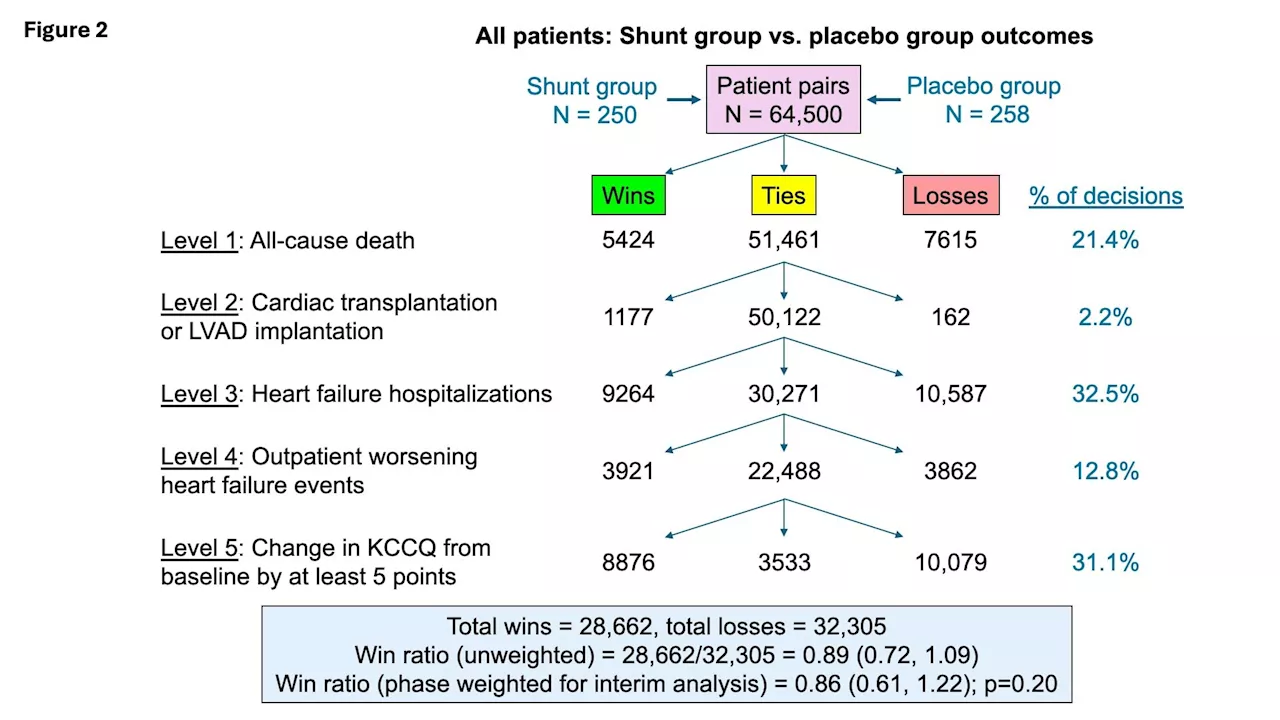 Inter-atrial shunts may benefit some heart failure patients while harming others, trial findsInter-atrial shunts—investigational devices that create a small pathway for blood to pass from the left to the right side of the heart in order to improve heart failure symptoms and outcomes—may be beneficial to heart failure patients with reduced left ventricular ejection fraction (LVEF) but harmful or even deadly for heart failure patients with...
Inter-atrial shunts may benefit some heart failure patients while harming others, trial findsInter-atrial shunts—investigational devices that create a small pathway for blood to pass from the left to the right side of the heart in order to improve heart failure symptoms and outcomes—may be beneficial to heart failure patients with reduced left ventricular ejection fraction (LVEF) but harmful or even deadly for heart failure patients with...
Read more »
 Patients with device-detected atrial fibrillation and multiple comorbidities do not benefit from anticoagulation: StudyIn patients with device-detected atrial fibrillation and a high comorbidity burden, oral anticoagulation increases bleeding without a clear reduction in stroke. This is the main finding of a sub-analysis of the NOAH–AFNET 6 trial presented by Dr.
Patients with device-detected atrial fibrillation and multiple comorbidities do not benefit from anticoagulation: StudyIn patients with device-detected atrial fibrillation and a high comorbidity burden, oral anticoagulation increases bleeding without a clear reduction in stroke. This is the main finding of a sub-analysis of the NOAH–AFNET 6 trial presented by Dr.
Read more »
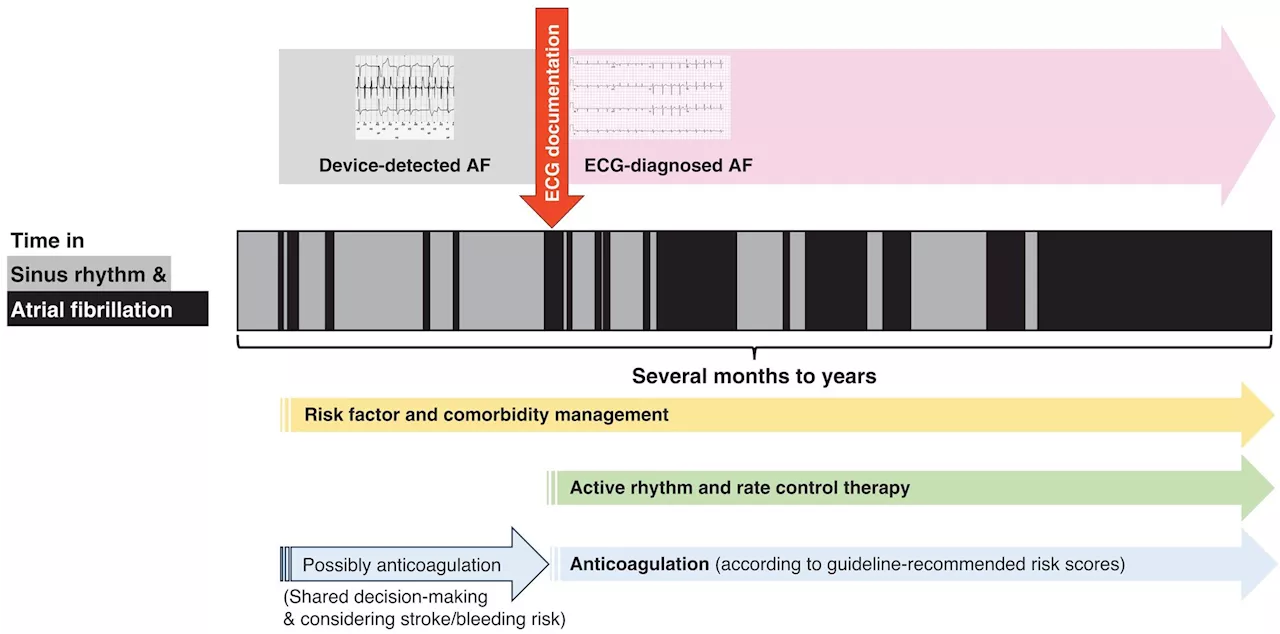 Experts give recommendations for longer and better lives for patients with atrial fibrillationAn international panel of experts published recommendations to improve management of atrial fibrillation (AF).
Experts give recommendations for longer and better lives for patients with atrial fibrillationAn international panel of experts published recommendations to improve management of atrial fibrillation (AF).
Read more »
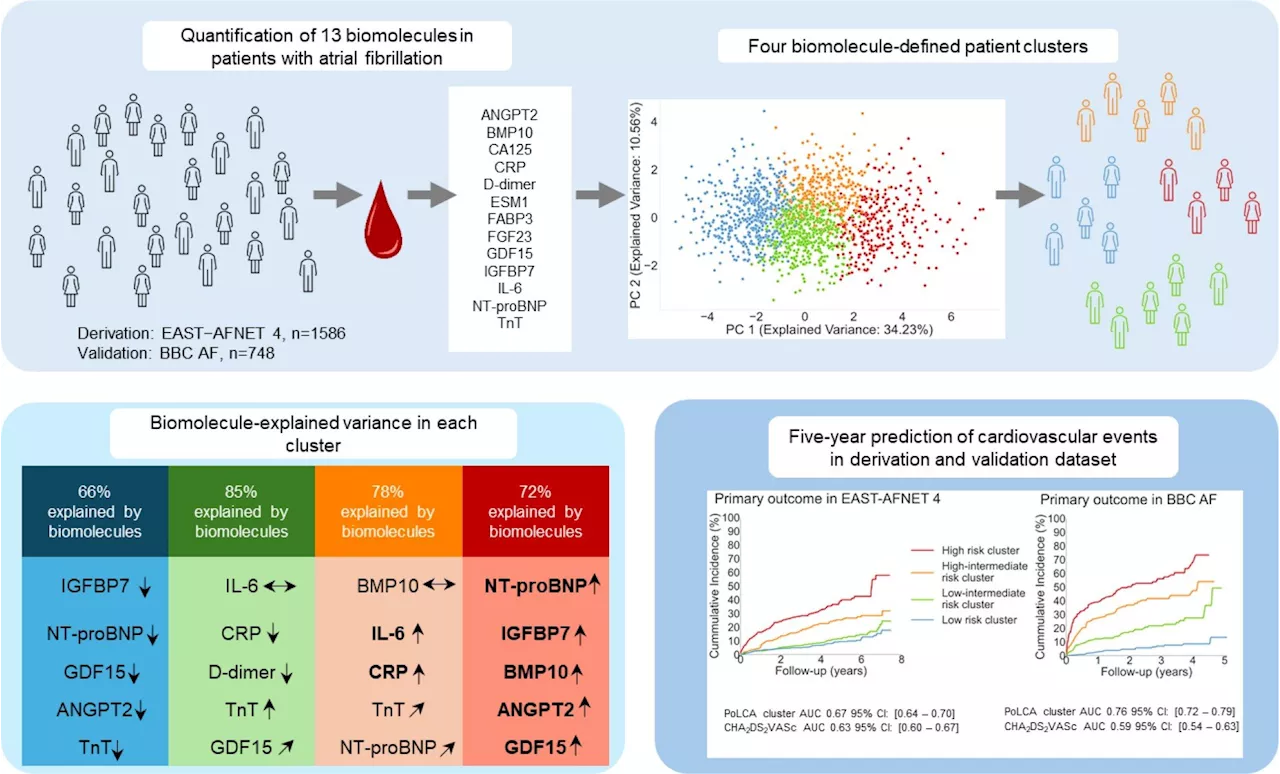 Circulating biomolecules identify patients with atrial fibrillation at high risk of cardiovascular eventsAn analysis of the biomolecule substudy of the EAST–AFNET 4 trial has revealed that biomolecule concentrations in the blood of patients with atrial fibrillation can be used to identify patients at high and low cardiovascular risk. The findings were published in Cardiovascular Research.
Circulating biomolecules identify patients with atrial fibrillation at high risk of cardiovascular eventsAn analysis of the biomolecule substudy of the EAST–AFNET 4 trial has revealed that biomolecule concentrations in the blood of patients with atrial fibrillation can be used to identify patients at high and low cardiovascular risk. The findings were published in Cardiovascular Research.
Read more »
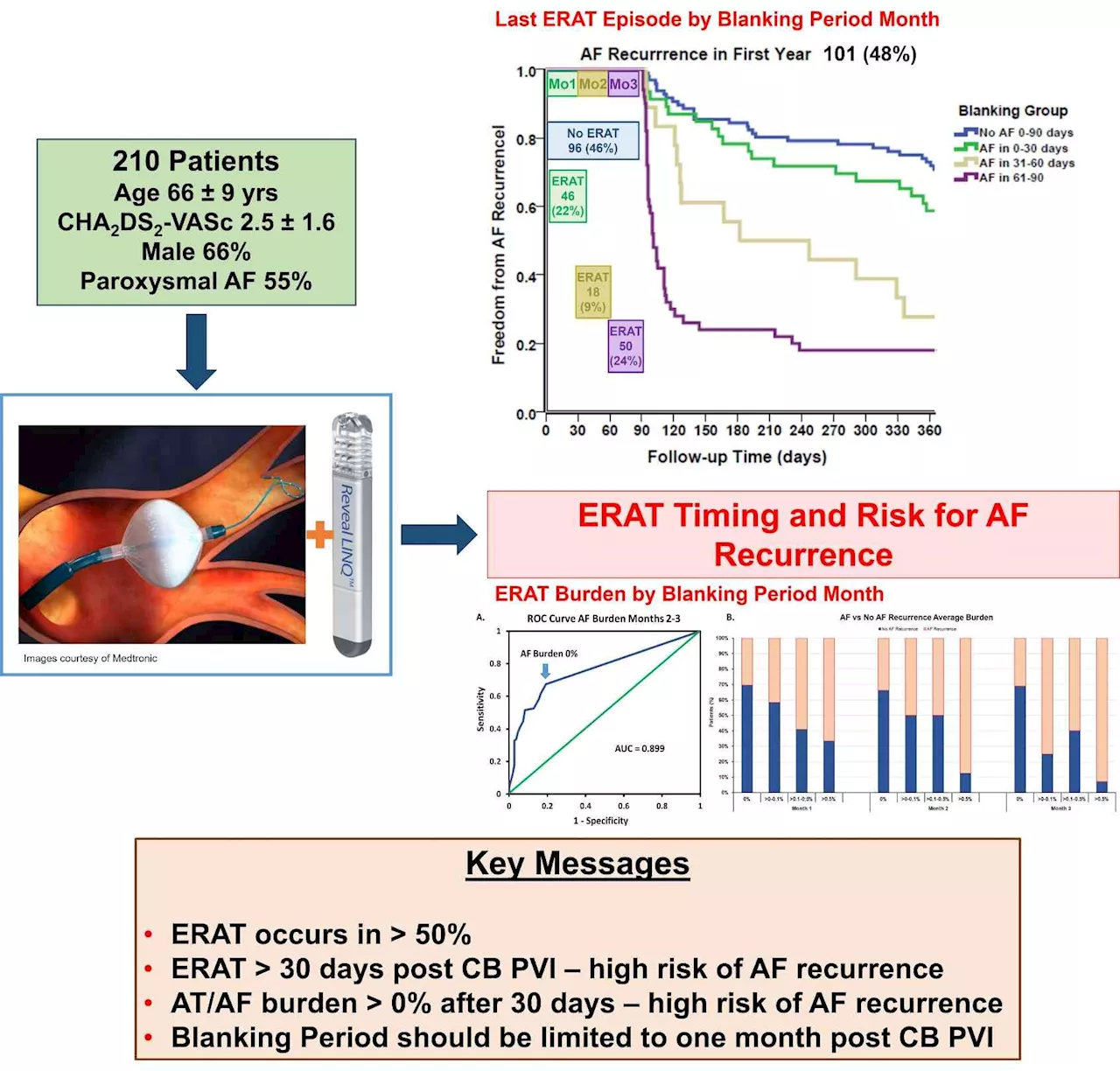 Shorten the blanking period after atrial fibrillation ablation, experts sayNew evidence-based research calls into question the conventional three-month blanking period immediately after atrial fibrillation (AF) ablation when early occurrences of AF are thought not to predict long-term AF recurrence.
Shorten the blanking period after atrial fibrillation ablation, experts sayNew evidence-based research calls into question the conventional three-month blanking period immediately after atrial fibrillation (AF) ablation when early occurrences of AF are thought not to predict long-term AF recurrence.
Read more »
